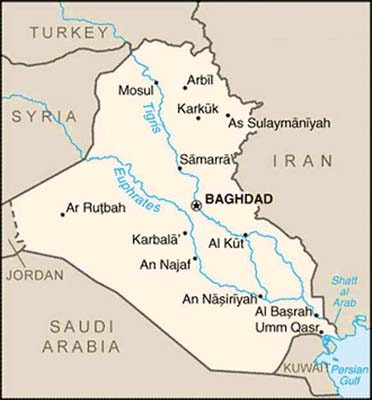Iraqi lawmakers welcome end to parliamentary impasse
 Baghdad - Iraqi lawmakers welcomed on Monday the election of a new speaker of parliament, Iyad al-Samarrai, ending months of political impasse over the position.
Baghdad - Iraqi lawmakers welcomed on Monday the election of a new speaker of parliament, Iyad al-Samarrai, ending months of political impasse over the position.
Al-Sammarai, a member of the Sunni Iraqi Islamic Party, won election to the post with 153 of 232 votes cast on Sunday.
The assembly had been paralyzed since al-Samarrai's predecessor Mahmud al-Mashhadani resigned in December, thwarting important legislation including the country's new oil and gas law.
The new speaker, a 63-year-old engineer from the predominantly Sunni Baghdad suburb of Adhamiya, on Monday pledged "to work with the presidency and the political blocs in parliament ... to bolster parliament's role in overseeing the executive."
"But," he stressed, "We only have a few months left in this session. So we must join all our efforts to achieve the best results quickly."
"There are many laws ... and constitutional amendments that must be approved quickly," al-Samarrai said, singling out pending and contentious legislation on the development and use of profits from Iraq's vital petroleum industry.
Abbas al-Bayati, a member of parliament with the ruling United Iraqi Alliance, told the German Press Agency dpa, that he approved of the "unceremonious" way al-Samarrai began work on Monday.
"We will cooperate with him and stand beside him in his efforts to improve the lot of the Iraqi people and to make Iraq's march to democracy a success," al-Bayati said.
"Al-Samarrai faces great challenges," al-Bayati told dpa. "He can overcome them by having the wisdom to move away from conflict with the government to resolve problems and speed the passage of important legislation."
Al-Samarrai's election gave the Iraqi Islamic Party control of a second crucial post in the Iraqi political system. Vice-President Tariq al-Hashimi is also a member of the party.
Some in Prime Minister Nuri al-Maliki's ruling coalition had feared that control of the two positions could give the party too much power to check the government's agenda, or even to call for a vote of no-confidence in the government.
Mahma Khalil, a Kurdish member parliament, hailed al-Samarrai as "a sophisticated, efficient and strong personality."
"I think (his election) is appropriate for this sensitive stage. The Iraqi parliament needs to be a strong governing body to take the many crucial decisions before it," Khalil told dpa.
Salah Mahdi, a 37-year-old civil servant from Baghdad, told dpa he was relieved by the end of the months-long dispute over who should lead the parliament.
"We are not in the wrestling ring," Mahdi said. "It's not important that the speaker prove himself to be strong. What's important is that the blocs close to him resolve the outstanding issues, overcome the difficulties, and quickly come to agreement on the pending legislation." (dpa)